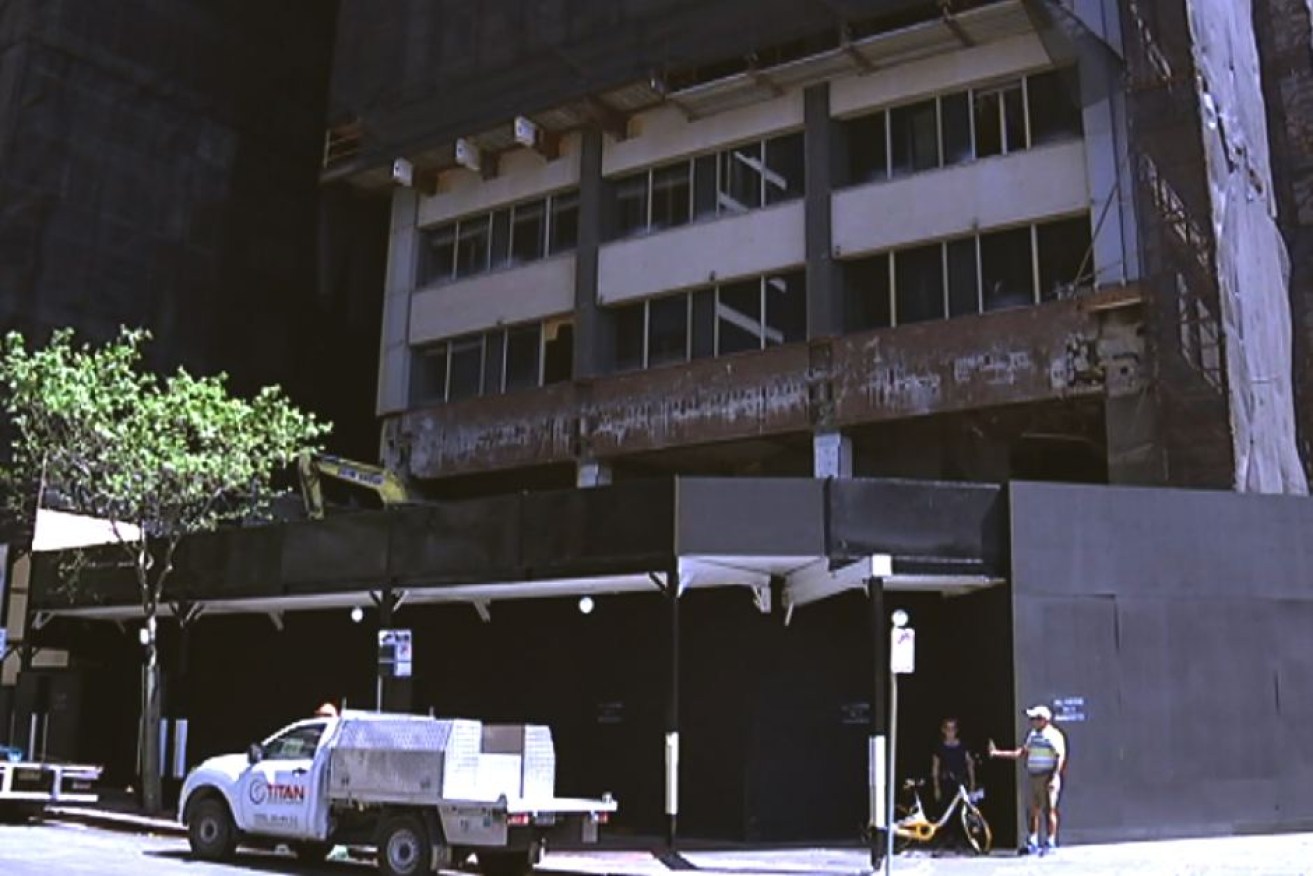Chinese developers ‘walking away’ from Australian projects

The One Sydney development is underway, but its Chinese developer has faced funding challenges. Photo: ABC
A landmark Sydney property at Circular Quay, bought by Chinese commercial property giant Dalian Wanda Group, is now flanked by blank hoardings.
At one point they proudly displayed signs of the company’s vision for its One Sydney project – a billion-dollar development consisting of two massive towers.
J Capital research managing partner Tim Murray said the party is now over for such China-backed megaprojects.
“Chinese developers that have been overpaying for properties in Australia are now struggling to find the finance to closing those deals and they’re actually walking away from large deals and large deposits,” he observed.
Chinese authorities, anxious to stem the outflow of money from China and stabilise the yuan, have tightened restrictions on foreign investment by their companies.
The concern is that China’s financial stability is threatened by the capital outflows, which are being exacerbated by property developers.
David Chin, the managing director of advisory firm Basis Point, said the Chinese government regards the overseas property buying spree as irrational.
“Paying money for trophy investments or bragging rights, you know paying over the odds in the expectation that there is more capital coming through. Those days specifically are over,” he said.
Hong Kong developer Country Garden paid a record $400 million for this parcel of land on the outskirts of Melbourne, just a few months ago.
There is keen interest in whether any of the planned 4000 homes will be built soon.
Property development frowned upon
The Chinese government’s new directive encourages investment in resources, agriculture and technology.
But property investments such as hotels and residential, as well as sports and film investments, are now on the restricted list.
Dalian Wanda is one of the companies Chinese authorities are watching more closely, and the Sydney One site is clearly a project Chinese authorities would have considered restricted.
Mr Chin said the effect of the restrictions on individual projects will depend on how far advanced they are.
“Some developers who have perhaps not started projects yet might be looking to sell their sites, on sell, or just wait and see attitude and just hold it,” he said.
“Others that have already started, chances are they would have already got funding for it and it will go through the whole process and in that process they would have already presold a substantial amount of off-the-plan sales.”

The One Sydney development formerly had glossy signage advertising the finished product. Photo: ABC
If the developers have not yet lined up their funding, Mr Murray said it is unlikely that Australian banks will help them out of what could be a terrible bind.
“Right now, in order to get a construction loan from an Australian bank you really have to have presold a hundred per cent of the building and none of that can be to foreign buyers,” he said.
“Now, a Chinese property developer who may be in trouble has probably already sold 50 per cent to foreign buyers.
“So they don’t meet the criteria unless of course they unwind those transactions and then pre-sell it to Australian residents.”
That is why some Chinese developers are searching for non-bank funding.
Further restrictions may be added
Adding to the uncertainty is this month’s Communist Party congress where there could be major changes in the party’s leadership and the makeup of its top decision making body, the Politburo Standing Committee.
“There is a view that capital controls will be further tightened after the party congress. that it is a topic for discussion at the Party Congress,” Mr Murray said.
Tim Murray said the Yuan may come under pressure again as US interest rates and the dollar rise, and Chinese property prices soften after a strong run.
It could also herald the return of some investors looking for a bargain.
“I think the capital restrictions are effective on property developers because that’s large loans through large banks and other equity controls that the government can put in place,” Mr Murray said.
“However, for the smaller investor buying properties, it could well be that they’ll return to the market in 2018.”
Chinese property developers, which snapped up a massive 38 per cent of residential development sites last year, will not vanish completely either.
They may be forced to search some of Australia’s smaller, cheaper cities and regional tourist centres.
“On that basis it is still an investment in Australia but it’s at a lower price point. They may look at Cairns and Perth,” Mr Chin said.
Mr Murray said the tables have well and truly turned.
“Australian developers have been sitting on the sidelines, looking at the crazy prices that have been paid for development sites,” he said.
“Now they’re thinking the time for them to return to the market is coming back.”
-ABC








